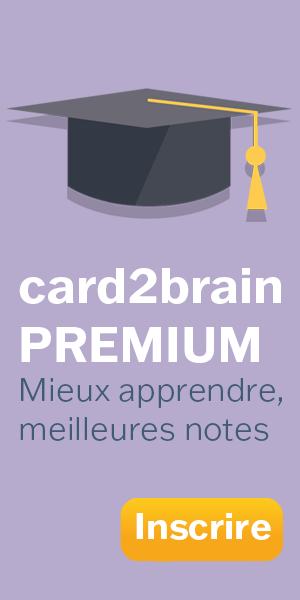jj
Set of flashcards Details
| Flashcards | 360 |
|---|---|
| Language | Deutsch |
| Category | Psychology |
| Level | Primary School |
| Created / Updated | 02.01.2013 / 26.07.2022 |
| Weblink |
https://card2brain.ch/cards/entwicklungspsychologie2?max=40&offset=120
|
| Embed |
<iframe src="https://card2brain.ch/box/entwicklungspsychologie2/embed" width="780" height="150" scrolling="no" frameborder="0"></iframe>
|
2. Cognitive changes 2.1 Piaget’s preoperational stage
- substages
1. the symbolic-function substage (from about 2-4 years)
2. the intuitive-thought substage (from about 4-7 years)
- begin of primitive reasoning (logisches Denken)
- want to know all answers (why-questions)
- intuitive (= seem sure about knowledge, but are unaware of how they know what they know)
- centration (= focussing on only one aspect neglecting others)
2. Cognitive changes 2.1 Piaget’s preoperational stage
- evaluation
- conservation at earlier ages possible
- problem of focussing attention (can be taught)
2. Cognitive changes
2.2 Vygotski’s theory
- social constructivist approach
- importance of social contexts of learning
- construction of knowledge through social interaction
2. Cognitive changes
2.2 Vygotski’s theory
- role of language
- private speech (using language to plan, guide, and monitor one’s behavivor)
- merging of language and thought
- inner speech (internalized private speech = thoughts)
2. Cognitive changes
2.3 information processing
- attention
- focusing on salient vs. relevant dimensions
- inappropriate regulation of attention
3. Language development
3.1 Phonology and morphology
- phonology, morphology and abstract rules
- phonology (use and combination of phonemes of one’s language)
- morphology (word formation)
- application of (abstracted) rules
3. Language development
3.3 Pragmatics
- improved pragmatics (appropriate use of language in different contexts)
3. Language development
- Literacy
- individual differences in literacy (Lese- und Schreibfähigkeit)
- related to later cognitive skills
1. Emotional and personality development 1.1 The self
- self - understanding
- understanding other people’s desires and emotions (cf. theory of mind)
- self-understanding
- understanding other people’s desires and emotions (cf. theory of mind)
1. Emotional and personality development
1.3 Moral Development
- moral behavior
- social skills (like empathy and self-control, e.g. in resisting temptations)
- emotional (positive or negative) consequences
- context dependent
1. Emotional and personality development
1.3 Moral Development
Freud´s approach
- development of super-ego (Über-Ich; from internalizing one’s parents’ standards)
1. Emotional and personality development
1.3 Moral Development
Piaget´s approach
Piaget’s approach: asking children for rules of games and their justification
- heteronomous morality (4-7 years; heteronome Moral)
1. Emotional and personality development
1.3 Moral Development
Kohlbergs approach (chapter 8
Kohlbergs approach (chapter 8
- social and psychological dimensions of being male or female
- gender identity (with 3 years)
- gender roles (gender-specific expectations; develop in pre-school years)
- preference for same-sex playmates (from 3-12 years)
- larger group sizes for boys than girls
- more rough+tumble play for boys, more collaborative discourse for girls
Emotional and personality development
1.4 Gender
- gender theories
1. social role theory (contrasting roles in society) 2. psychoanalytic theory of gender 3. social cognitive theory of gender – learning by imitation, reward and punishment – parental and peer influences – development of cognitive gender-schemata – guide for behavior, memory, and self-definition 4. evolutionary theory
3. Peer relations, play, and television
3.1 Peer relations
- source of information and comparison
- feedback on one’s abilities
- increasing frequency of social interactions
- problem of neglected (missachtet), withdrawn (zurückgezogen), or aggressive children
3. Peer relations, play, and television
3.2 Play
- functions of playing
3. Peer relations, play, and television
3.2 Play
- games
- games (Spiele; mostly rule-based and competitive)
3.3 Television
- discussion of pros and cons
- US children spend considerable amount of time watching TV
discussion of pros and cons
- pros: learning, motivation, models of prosocial behavior
- cons: passive learning, distracting from other activities, presenting stereotypes, violent models, unrealistic views of the world
3.3 Television
- effects of TV on children´s aggression
- continuous body growth, change of body proportions
- increase in muscle mass and strength
- development of prefrontal cortex
- increases in myelination (Myelinisierung)
- changes in brain activity from larger to smaller areas (Synaptogenese und Pruning)
- improving fine motor skills (e.g., drawing and writing)
- importance of physical exercise
1. Physical changes and health
1.2 Health, illness, and disease
- overweight children
2. Children with disabilities 2.1 Learning disabilities (Lernbehinderungen)
- possible causes
- genetic influence
- insufficient learning support
- problems in integrating brain activity from different regions












